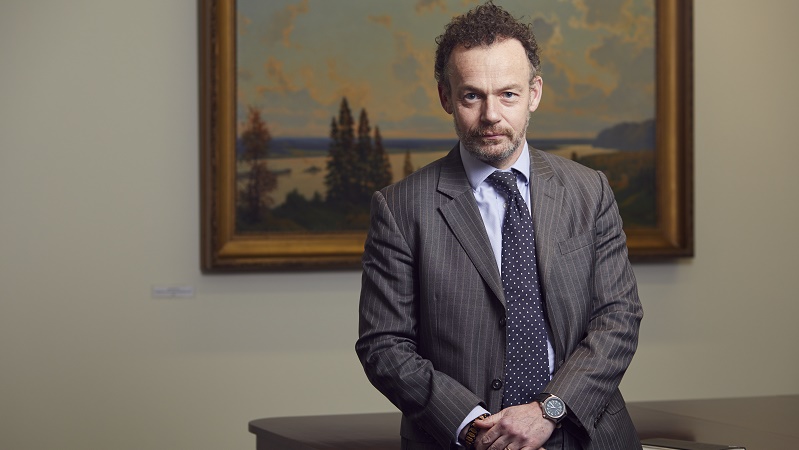When I sit down with Charles Stanley’s CIO Jon Cunliffe, he has just celebrated his third anniversary at the firm.
During his brief time at the wealth manager, Cunliffe has already set radical change in motion. He has overhauled the research process to make it “more focused, more actionable and a lot more relevant”.
Similarly, he has played a big role in making sure the firm’s guidance to investment managers on the private client side is better aligned to asset allocation outcomes as opposed to general views or themes – in a sense, mimicking the centralised approach of the asset management division.
Aligning outcomes
Cunliffe straddles both the private client and asset management divisions, overseeing the research and asset allocation guidance for the entire investment network.
While the lion’s share of the firm’s £25bn assets is parked in the bespoke portfolio management service, Cunliffe says the firm is aware of the growing demand from IFAs for consistency of outcomes.
“They want to know that they’re getting something similar wherever they go, but not identical, so there’s flex,” he explains.
In addition to following the firm’s in-house guidelines, managers are also encouraged to use its model portfolios as a source of inspiration or a template against which they wish to manage money.
Not all the firm’s private client managers have changed the way in which they run money but Cunliffe says the recommendations have been generally well received.
“We still allow our individual and asset managers a high degree of autonomy,” he stresses. “Over time, we’re trying to make sure our managers play to their strengths. If I can help them do that through the guidance I give them, that’s a clear positive.
“What we don’t want is for our managers to lose the ability to be able to decide what’s best for their clients – but we need to make sure we provide enough support to help them do that.”
Cunliffe spent the first five and a half years of his career in the hallowed halls of the Bank of England, working in the gilt and money market edged division for the last two. His time at Britain’s central bank would set him up for a 20-plus year career in fixed income at various fund groups, including Lombard Odier, ABN Amro Asset Management and Aberdeen Asset Management.
He had a brief stint outside of the asset management industry as the head of fixed income and multi-asset investment strategy for Tesco’s pension fund. While he says he enjoyed the “clarity of purpose” of working for one massive institutional client, he missed the “variety of client engagement”. By the time an opportunity arose to join Charles Stanley he says he was relishing the prospect of a “broad, commercial role”.
His previous experience, particularly at the central bank, has given him a solid grounding in macro policy.
Feedback loops
Another lesson learned comes from an unlikely source: George Soros. Cunliffe was working as a dealer for the Bank of England when the billionaire Hungarian-American investor, then a major currency trader, famously ‘broke the pound’ in 1992 by betting against the central bank.
Though Cunliffe had “mixed feelings” about Soros at the time, he says ‘Black Wednesday’ made him a believer in the reflexivity in markets, the idea that investors’ bullish or bearish perceptions create a self-fulfilling prophecy by impacting fundamentals, which feeds back into other investors’ behaviours, causing prices to become further detached from reality.
The eurozone sovereign debt crisis was an example of an adverse feedback loop in action, says Cunliffe. Fears over fiscal sustainability in the region caused yields to rise, making investors averse to owning eurozone sovereign debt, prompting ratings agencies to downgrade credit ratings in countries like Greece, Spain and Italy.
Quantitative easing measures brought in after the financial crisis have created a positive feedback loop, he believes.
“The issue with QE ending is that a favourable feedback loop, in terms of a linkage between asset markets and the broad economy, can become an adverse feedback loop. That negativity causes the end of the cycle.”
Soros also taught him that “the job we have isn’t so much to predict the future… it’s trying to understand how people feel about the future”.
“Understanding what the market expects to see and then taking a view relative to that is actually the heart of what we’re doing,” says Cunliffe. “You’re more likely to make money by gauging what the market expects, and taking a view either side of it, than saying, ‘I predict growth is going to be 3% this year and earnings will come in at 10%’.”
Right now, the market is “front-running” an end to the cycle, with some commentators predicting a recession as early as the second half of this year. While Cunliffe agrees there are “warning signs that things are coming off the boil” he believes a downturn is a year away at least.
However, investors should be expecting single-digit returns from developed market equities this year and only slightly higher returns from emerging market equities.
“It’s not stellar growth,” he clarifies. “Globally, it’s going to be maybe a smidge below trend this year but, of course, that is a way away from some of the worst expectations in the market, which are for a fullblown recession.” The only events capable of triggering a recession this year would be “a major miscommunication on the policy front”, either from central banks or if the US-China trade war spirals into “a full-blown war on trade”.
Down the rabbit hole
The market has lots of opinions about Brexit, too. While global indices all suffered a significant earnings downgrade in the second half of 2018, UK equities are trading almost as cheaply as Asia Pacific and emerging markets equities.
Cunliffe finds the whole Brexit debacle “Alice in Wonderland-like”. “Lewis Carroll would probably struggle to explain how we’ve got where we’ve got to, and he was obviously a clever logician as well as a very good writer,” he says.
On the subject of Brexit, Cunliffe chooses his words carefully. His colleague John Redwood, who juggles two roles as Charles Stanley’s chief global economist and Conservative MP for Wokingham, is a vocal Eurosceptic who has attracted plenty of media attention. In 2017, critics lambasted Redwood for “talking down Britain” in a column he penned for the Financial Times in which he advised investors seek opportunities outside the UK.
Cunliffe is sympathetic to Redwood’s personal political views, which he describes as “perfectly rational” but keeps his own political leanings close to his chest.
“I actually don’t know what a good or bad Brexit looks like, I really don’t. And I’m not necessarily going to say what I think should or shouldn’t happen.
“All I can say is the UK market has cheapened up, both in absolute and relative terms, and it does offer a lot of attraction relative to other asset classes such as bonds. I prefer to focus on what I know about, rather than speculating about what I think politicians should be doing.”
Charles Stanley currently has a neutral outlook on the UK.
But Cunliffe shares Redwood’s confidence in the recovery of the pound and the UK’s growth trajectory. He doesn’t believe we’ll see more weakness in the pound, unless there is a no-deal outcome, and he has begun hedging more of his overseas exposure back into sterling.
Even if the UK crashes out of the EU on 29 March with no deal, Cunliffe suspects “there is a wall of money waiting to go into UK equities” from foreign investors who will be lining up to take advantage of a buying opportunity.
Whether we get a ‘good or bad’ Brexit “in the next two, three, four months, having a more constructive view on the UK equity market will make sense,” he says. But he cautions that investing in UK stocks in the current environment must involve a degree of risk management.
“I don’t think now is quite the time to pick winners but it is the time to be very, very conscious of your sector and individual stock exposure, of where revenues are coming from and how they may perform under different Brexit scenarios.”
Right now, he prefers stocks such as domestic brickmaker Ibstock, which looks attractive on a valuation basis and currently discounts a ‘bad Brexit’, and paper and packaging company DS Smith, which is benefiting from the shift toward online shopping. He also likes UAE-based healthcare provider NMC Health.
These companies are among 20-odd stocks in the equity sleeve of the model portfolios at Charles Stanley.
Elsewhere Cunliffe is looking to stock markets in the US and Asia where he is currently overweight. The team is broadly neutral on developed markets in general and has a small overweight to emerging markets, which they predict will be less hamstrung by a super strong dollar and benefit from a more patient Federal Reserve. By this same rationale, emerging market local and hard currency debt also looks attractive.
Cunliffe has maintained a short-fixed income/ long equity outlook but he says this is “a modest view”. But he has been holding US treasuries as an option against a hard landing in the global economy.
“We’re a bit more concerned about corporate bonds, particularly less well-rated corporate bonds, because of higher leverage and the risk of deteriorating fundamentals from current levels, particularly if we were to see the cycle come to an abrupt end.”











